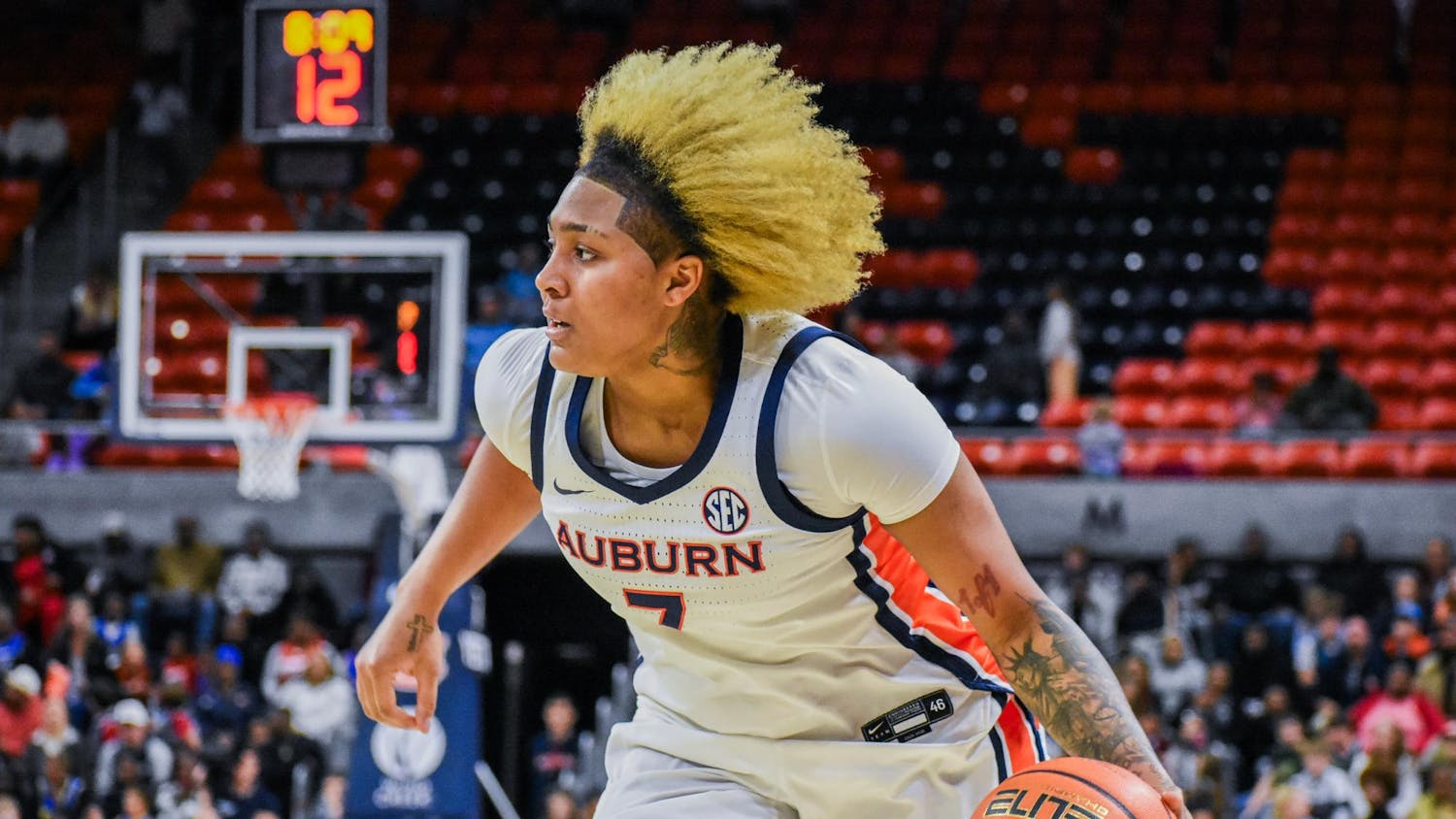When it’s game day at Auburn University, the last thing staff want to worry about is a player walking out and wearing the wrong equipment. Behind the scenes, an equipment manager works tirelessly to ensure all attire and equipment are ready to go before kickoff.
From design to the distribution of football costumes, Tyler Renard, director of football equipment for Auburn University, oversees it all.
This oversight is not limited to just the players on the field.
“Anything and everything our coaches and staff wear, myself or my staff are responsible for,” Renard said. The equipment manager supervises a staff of 15 student managers, as well as three full-time assistants.
Although not often recognized in the public’s eye, the career is a demanding one that requires a lot of multi-tasking and team effort.
“Truly Saturdays, especially during the game, should be my quietest hours of the week,” Renard said.
The process of equipment production takes about 18 months.
“The order window for Under Armour for next fall just came out,” Renard said. All items ordered by the end of October are expected to start arriving on July 1, 2023.
“That's how far in advance we have to be with our supply and that's across the board when it comes to equipment people. Adidas is the same way. Nike is the same way,” Renard said.
The whole week leading up to a Saturday football game is spent packing trunks, pressing wrinkles out of jerseys so that they look good on national TV and making sure all the grass stains are out from the past weekend.
Renard refers to the work week as “a massive group effort” getting players’ game loops – everything players wear under their jerseys and pants – ready and double-checked.
“From the outside looking in, we look like chaos. But when you're in the middle of it, you know exactly what's going on and what all needs to get done,” Renard said.
The best part of the career, according to Renard, is the relationships you’re able to make with the players.
“Just to see those kids develop and grow into the men and the husbands that they turn into. It's something that I really enjoy about my job.”
Renard reminisced watching Frank Ragnow, center for the Detroit Lions, progress while at the University of Arkansas.
“I remember Frank coming to Arkansas as this babyface, 18-year-old that was from Minnesota and just liked to talk about fishing,” Renard said.
He recalled Ragnow’s humble attitude and how he enjoyed seeing his friend get to where he is now.
“He just signed a contract extension in the offseason that made him currently the highest paid center in the NFL,” Renard said.
During a typical day as an equipment manager, they attend a staff meeting to go over the practice plan. They discuss what the dress is going to be, whether the players are just in helmets or if they need full pads.
Someone from Renard’s staff has to be present for early morning practice to make sure players have all their equipment and provide backups in case anything breaks.
Once players return from classes for afternoon practice, Renard and his team pass out game loops. The student managers help coordinate which position groups to oversee and ensure everything goes smoothly.
“When practice is over, I have three student managers stay and do laundry,” Renard said.
As for game day preparations, they start as early as one to two hours after the last game ended. “I have two to three student managers that will collect all the jerseys in the locker room. And we start getting grass stains out of those jerseys,” Renard said.
Rain makes the job more complicated, as it affects numerous variables throughout the game that the equipment manager has to think about ahead of time. They are responsible to keep enough dry balls during the football game. Renard also has to determine how many pairs of cleats to pack in case the players will need to switch.
Renard and his team have to consider taking the visors off of players’ helmets. If it rains, the water sticks to the visor making it difficult to see. These are decisions that may be made with short time notice, and thus require the equipment manager to adapt quickly.
“You have to be able to balance a lot of different things because you're getting pulled in six different directions every single day,” Renard said.
Do you like this story? The Plainsman doesn't accept money from tuition or student fees, and we don't charge a subscription fee. But you can donate to support The Plainsman.
Caroline Mason, junior in professional flight, is a news writer at The Plainsman.





